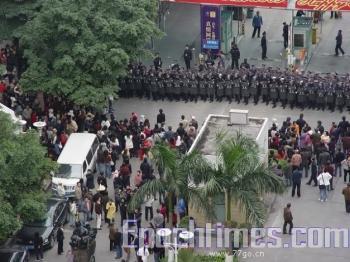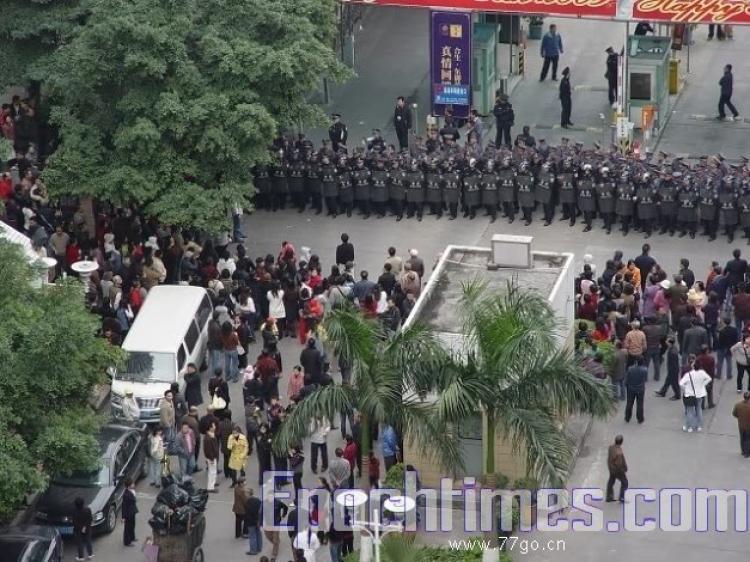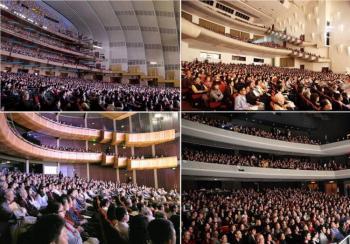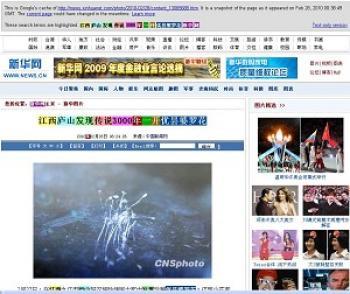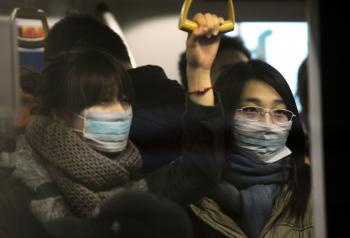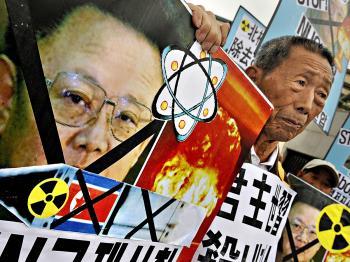On January 5, the Chinese Communist Party’s (CCP) Xinhua.net unexpectedly published an article entitled “2009 Will Be a Prime Year For Public Protests and They Shall Be Dealt With Properly.” In the article, the CCP made the statement that “Without doubt, we’re now in a peak period for public protests and CCP authorities expect to encounter many more in 2009.” It further pointed out that the protests are becoming massive and aggressive, and they are quickly escalating into riots leading to tremendous damages.
This article was quoted from the Outlook (Liaowang) Magazine, which included three interviews by Xinhua News Agency’s reporters in Chongqing, Jiangsu and Guangdong Province respectively. Besides referring to 2009 as a predicted peak year for public protests, the article also made analyses.
According to the article, most protests today are sympathized with and supported by the general public. As soon as one person in a neighborhood raises an issue against the government, the whole community then offers support eventually forming a protest. Quickly these protests escalate into riots leading to tremendous damages.
Minor incidents quickly escalate and turn into a riot.
At the end of the article, it inexplicitly mentioned that strict control of the judicial system and media censorship were the main cause of the public protests. However, it mainly attributed the rioting to people’s poor living standards resulting from the financial crisis and high unemployment rate.
Nevertheless, experts pointed out that it was the CCP’s corrupt system of government and its dictatorial rule that contributed to the riots.
There were many large scale public protests that took place in 2008, including the rioting in Weng-an County, Guizhou Province and the protests resulting from Yang Jia’s killing of police in Shanghai. It has become a trend that people attack government buildings and assault police, and that massive rioting is becoming the standard of Chinese protests. In particular, as Yang Jia’s slogan, “If you fail to answer me, I will give you my answer” has been widely circulated on the Internet, and “Down with the Chinese Communist Party (CCP)” has become a common slogan among Chinese people that has the CCP quite fearful.
The CCP state-run media attitude toward massive rioting has changed from keeping silent into having no alternative but to report them. This was the first time that the CCP reported so “honestly” on the protests.
Renowned democracy activist Wei Jingsheng noted that the on-going violent tendency in Chinese protests is the result of the CCP’s stubbornness and it insisting on one-party rule. He added, “Not only have liberals, but also many centrists within the CCP noticed the Chinese society’s violent tendency demonstrated in the incident resulting from Yang Jia’s killing of policemen. If the CCP fails to take initiative to go ahead with reforms, a violent revolution will not be avoided. As a result, they are wondering if accepting “peaceful transformation” is the wisest choice.”
However, Wei indicated that the CCP has insisted on its one-party dictatorial rule and clearly asserted that it would never give “peaceful transformation” a chance. As a result, the people have no choice but to resort to massive rioting. As the current of violent revolution has now surged in the Chinese people, the chance for “peaceful transformation” has become less and less.
Read original Chinese article.
